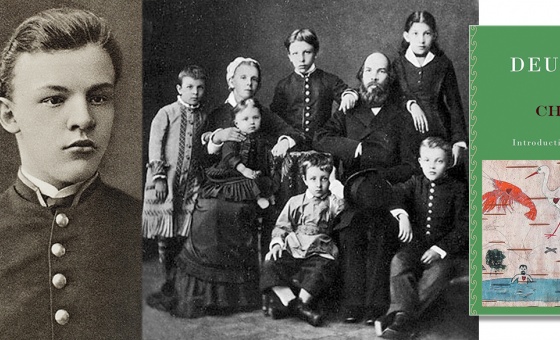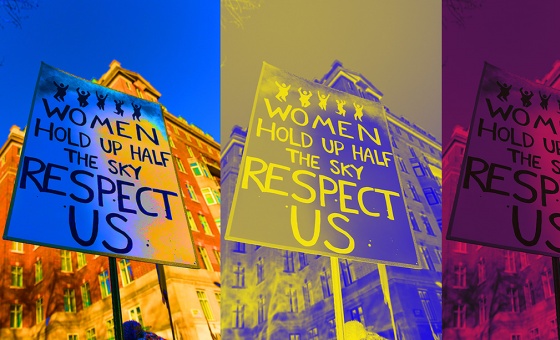This is the last article you can read this month
You can read more article this month
You can read more articles this month
Sorry your limit is up for this month
Reset on:
Please help support the Morning Star by subscribing here
LAST WEEK, details of an abhorrent incident of misogynist and racist child abuse at the hands of the police was uncovered.
In 2020, the same year that the police murder of George Floyd sparked the inspiring, global Black Lives Matter movement, a black, female 15-year-old was invasively strip-searched by police officers from the Metropolitan Police Service at her Hackney school.
The official report into the incident, published by Jim Gamble QPM, independent child safeguarding commissioner, found that the search, which involved the exposure of Child Q’s intimate body parts, took place on school premises, without an appropriate adult present and with the knowledge that Child Q was menstruating.
After the search, Child Q was forced to reuse her stained sanitary pad. Child Q’s mother was not notified in advance.
The search took place because the girl was accused of smelling like cannabis. Yet no drugs were found during either the strip-search or a search of the room in which Child Q had been waiting beforehand.
The official report concluded that “racism (whether deliberate or not) was likely to have been an influencing factor in the decision to undertake a strip-search.”
The report also found that the child had been subjected to “adultification” bias — where black and ethnic minority children are held to adult standards, but their white peers are less likely to be.
Child Q was later allowed to return home where she disclosed the events to her mother.
Child Q’s mother took her to the family GP who made a referral for psychological support and authorities later identified that Child Q had been exposed to a traumatic incident and had undoubtedly suffered harm.
Her mother reports how her daughter has become despondent, uncommunicative, has stopped eating, suffers from panic attacks, that she is now self-harming and requires therapy.
Unwarranted and malicious rumours abound in Child Q’s school that she is a drug dealer — a reputation purely due to this indefensible and damaging strip-search.
A month before this awful incident, Child Q was accused by school staff of being “intoxicated,” although on contacting her mother, she explained that Child Q had been studying late the night before and it was this that accounted for her presentation. Child Q’s response to this traumatic incident is utterly heart-breaking.
The 15-year-old said that “someone walked into the school, where I was supposed to feel safe, took me away from the people who were supposed to protect me and stripped me naked, while on my period … On the top of preparing for the most important exams of my life.
“I can’t go a single day without wanting to scream, shout, cry or just give up. I feel like I’m locked in a box and no-one can see or cares that I just want to go back to feeling safe again, my box is collapsing around me and no-one wants to help. I don’t know if I’m going to feel normal again.
“I don’t know how long it will take to repair my box. But I do know this can’t happen to anyone, ever again. All the people that allowed this to happen need to be held responsible.
“I need to know that the people who have done this to me can’t do it to anyone else ever again.”
It is important that all 14 recommendations of Gamble’s investigation into this incident are immediately adopted.
Yet it is even more vital that the racist and misogynistic attitudes underpinning Child Q’s ordeal are addressed, so that, to repeat the child’s own words, “The people who have done this to me can't do it to anyone else ever again.”
During 2020 to 2021, there were 299 “further searches” — the police euphemism for strip-searches — conducted in Hackney alone by local police officers from the central east basic command unit of the Metropolitan Police Service.
As Diane Abbott MP amplified in Parliament on Friday, 25 of these were children under the age of 18, most were black, only two of the 25 children who were strip-searched were white, 60 per cent were black and the rest were from other racialised groups.
According to data obtained by a freedom of information request, 172,093 people were subjected to this degrading and traumatic treatment between 2016 and 2021 across Britain — including 9,088 young people between the age of 10 and 17.
Child Q’s ordeal took place in the same part of London where the Met apologised in January and paid compensation to an academic, Dr Konstancja Duff, for “sexist, derogatory and unacceptable language” used by officers about her when she was strip-searched.
Two police officers were also jailed for sharing photographs of the bodies of Bibaa Henry and Nicole Smallman, two young black sisters from north London who went missing in June 2020, to a WhatsApp group including 41 police officers.
The police were also accused of showing a lack of interest in the fact that the two sisters were missing, which delayed their search.
Just last month, the Metropolitan Police was forced to deny that the force is plagued by a culture of misogyny after an official report revealed shocking details of officers sharing messages about hitting and raping women, as well as the deaths of black babies and the Holocaust.
The Independent Office for Police Conduct (IOPC) report on behaviour at Charing Cross police station found a culture of toxic masculinity.
The IOPC said the behaviour was part of an offensive Met Police culture, not just rogue individuals.
“We believe these incidents are not isolated or simply the behaviour of a few ‘bad apples’.”
This all comes, of course, after the brutal police crackdown of a vigil in the memory of Sarah Everard, a young woman kidnapped, raped and murdered by a serving police officer.
The institutional racism and misogyny in the police needs to be seriously addressed. So, too, does institutional racism in our schooling system.
Because while the case of Child Q exposes the degrading treatment of black girls and the mindset of those who look the other way, we should not assume this is a one-off; structural biases plague our educational system.
A study by the think tank LKMco found that London teachers are biased against black Caribbean and white boys from poorer backgrounds.
The report found how unconscious prejudices affect the way black Caribbean boys are disciplined at school, how their work is assessed and the academic ability set that they are put in.
Black Caribbean boys’ attainment in London is 17 percentage points behind the London average for expected standards in reading, writing and maths by the end of primary school.
Racial inequality is also endemic in school discipline. Government figures show that black Caribbean students are twice as likely as white students to be temporarily excluded from school and nearly three times more likely to be permanently excluded.
Research by the Department for Business, Innovation and Skills found that black (African and African-Caribbean) A-level students had the lowest predicted-grade accuracy, with only 39 per cent of predicted grades accurate, while their white counterparts had the highest, at 53 per cent.
Therefore, amid the coronavirus crisis, it is likely that the cancellation of A-levels and increased reliance on predicted grades will have a disproportionately negative impact on black students.
This form of discrimination extends to university and beyond. The National Union of Students found that, at a university level, 77 per cent of white students received a first or 2:1 compared with 62 per cent of African, Asian and ethnic minority students in England, while unemployment levels immediately after university were also higher among African, Asian and ethnic minority students.
The lesson from this grim incident is clear. We must all redouble our efforts to end the scourge of racism that plagues our police forces, our educational institutions and all aspects of our society.
As the Combahee River Collective puts it, “The cruel, often murderous, treatment we [black women and girls] receive, indicates how little value has been placed upon our lives during four centuries of bondage in the western hemisphere … The liberation of all oppressed peoples necessitates the destruction of the political-economic systems of capitalism and imperialism as well as patriarchy.”
Claudia Webbe MP is the member of Parliament for Leicester East — you can follow her on Facebook: @claudiaforLE and Twitter: @ClaudiaWebbe.










